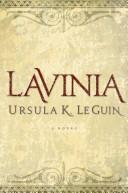Ameimse reviewed Lavinia by Ursula K. Le Guin
Lavinia
5 stars
Un grand coup de coeur que la lecture de ce roman. Un de ces livres dont il est possible de relire plusieurs fois d'affilée certains passages simplement pour le plaisir d'apprécier un style parfaitement ciselé et maîtrisé. La plume d'Ursula Le Guin, merveilleusement bien rendue par la traduction de Marie Surgers, y est aussi poétique qu'évocatrice. Sur le fond, l'autrice donne une place et une posture originale à la figure de Lavinia, dont la voix semble s'élever directement depuis l'Énéide. Le livre explore la puissance, la fabrique et la contingence des mythes, et questionne de façon fascinante les rapports et l'articulation entre personnage et personne, création littéraire et figure historiquement située. Ce n'est pas simplement "un autre point de vue" que celui du texte d'inspiration qui est proposé : l'autrice prend appui, et complète, réécrit, mais déjoue aussi le récit de l'Énéide. Et le soin apporté à l'ambiance et au …
Un grand coup de coeur que la lecture de ce roman. Un de ces livres dont il est possible de relire plusieurs fois d'affilée certains passages simplement pour le plaisir d'apprécier un style parfaitement ciselé et maîtrisé. La plume d'Ursula Le Guin, merveilleusement bien rendue par la traduction de Marie Surgers, y est aussi poétique qu'évocatrice. Sur le fond, l'autrice donne une place et une posture originale à la figure de Lavinia, dont la voix semble s'élever directement depuis l'Énéide. Le livre explore la puissance, la fabrique et la contingence des mythes, et questionne de façon fascinante les rapports et l'articulation entre personnage et personne, création littéraire et figure historiquement située. Ce n'est pas simplement "un autre point de vue" que celui du texte d'inspiration qui est proposé : l'autrice prend appui, et complète, réécrit, mais déjoue aussi le récit de l'Énéide. Et le soin apporté à l'ambiance et au cadre antique assure une belle immersion.
Un magnifique roman.

